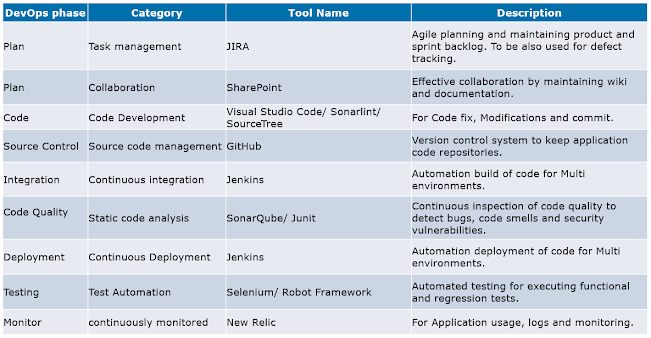DevOps
DevOps, the most popular now a days in IT industry. It's a set of practices/methodology in software Development and IT Operations. It is the combination of development (Dev) and IT operations (Ops) which helps to automate and improve the process of software delivery and infrastructure management. The main aim of DevOps is to break down the development and operation works within the Teams and collaboration & communication between them. The primary goal of DevOps is to accelerate the delivery of software applications while maintaining high quality, reliability, and security.
We can apply DevOps Process in Multi Tier Web Application Setup, Release Deployments, Automated Setup of Multi Tier Apps, Manage Applications in Car Manufacturing Industries, Airlines Industries Automated Patching etc.
Key Components and practices of DevOps Process includes;
1. Continuous Integration (CI): Developers regularly integrate their code into a shared repository, where automated tests are performed to identify and fix issues early in the development process.
2. Continuous Delivery (CD): Automates the deployment and release of code to staging environments and production. This ensures that software can be deployed quickly and reliably.
3. Automation: It includes infrastructure as code (IaC) for provisioning and managing infrastructure, as well as automation for software testing, deployment, and monitoring.
4. Monitoring and Feedback: DevOps emphasizes real-time monitoring of applications and infrastructure. This feedback helps teams to identify and address issues promptly and make data-driven decisions for continuous improvement.
5. Collaboration: Encouraging collaboration and open communication between development and operations teams is essential. This often involves cross-functional teams working together on projects.
6. Version Control: Using version control systems like Git to track changes to code and configuration, making it easier to manage and collaborate on software development.
7. Microservices: Architectural patterns like microservices are commonly used in DevOps to create modular, independently deployable components.
8. Security as Code: Integrating security practices early in the development process, often referred to as "DevSecOps," to ensure security is not an afterthought.
9. Culture and Mindset: DevOps promotes a culture of shared responsibility, learning from failures, and a focus on customer needs.
DevOps principles;
There are some other CI/CD Tools also available like AWS, Azure, GCP etc.














Comments
Post a Comment